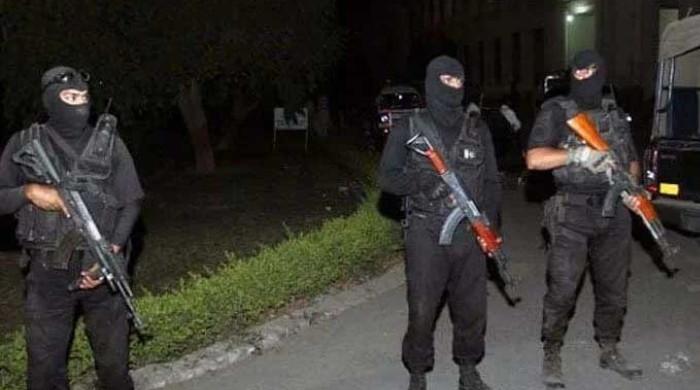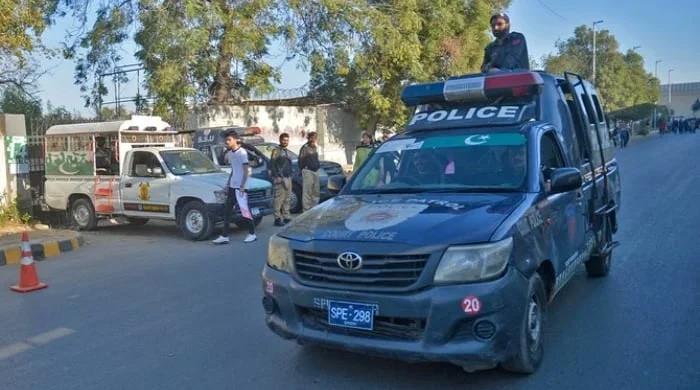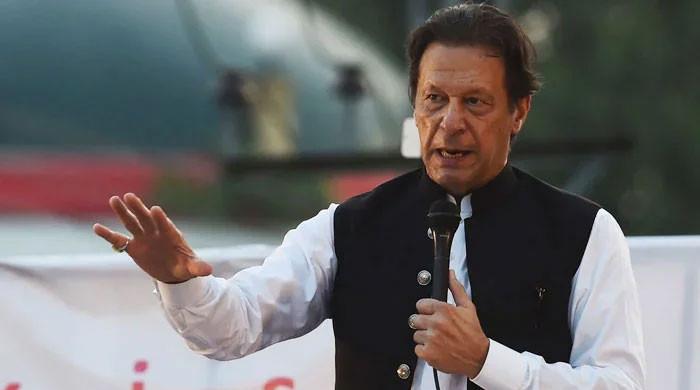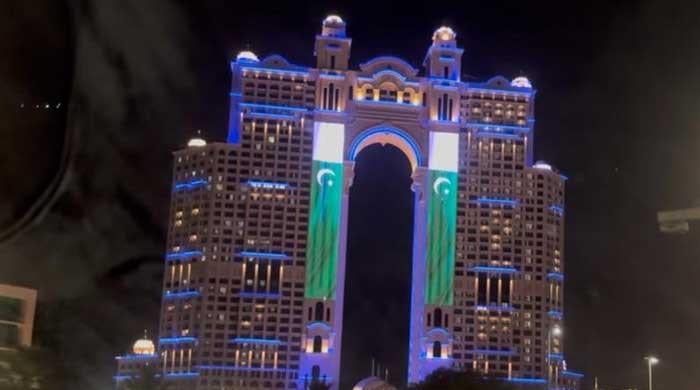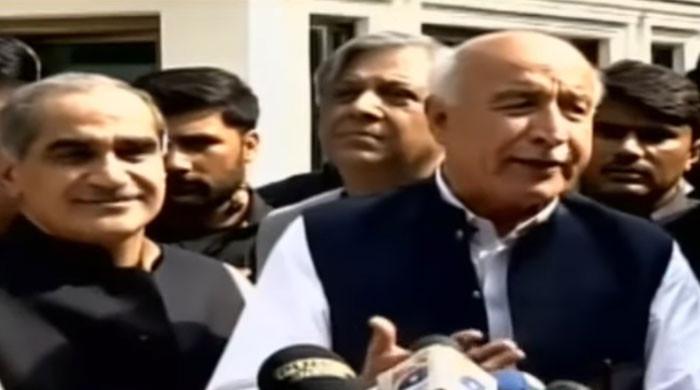Election 2024: Jibran Nasir vows to mic up voters with PS-110 app promising access, accountability
Jibran terms himself a "bitter pill to swallow" for political parties, claiming being independent would give him space to do issue-based politics
February 02, 2024
Jibran Nasir, a prominent human rights activist and lawyer, who is bidding for Sindh Assembly’s PS-110 seat for the fourth time, has said that bringing access, accountability, and justice to this diverse constituency was at the top of his political manifesto.
Spanning across areas like Defence Housing Authority, Clifton, and 18 densely populated colonies, PS-110 faces a range of challenges that Nasir aims to address with a comprehensive approach.
Nasir’s electoral symbol, suiting his brilliant articulation skills, is the mic.
Motivation behind repeated election bids
Rationalising his repeated unsuccessful election bids, Nasir says politics is all about perseverance. He believes in giving voters time to get to know a candidate's values and vision. Despite facing competition from candidates with established party legacies, Nasir sees his advantage in the deep connection he has built with the community through years of social work.
“You have to give time to the constituency. That could be done through social work, enhancing connectivity with the people, and by presenting yourself as a candidate in every election.”
'A bitter pill to swallow' for political parties
A notable aspect of Nasir's approach is his decision to remain independent. He describes himself as a "bitter pill to swallow," for other political parties as he is unwilling to defend the corruption cases for their leaders.
“Our political parties believe in absolutes, a PTI (Pakistan Tehreek-e-Insaf) member cannot even whisper that the PPP has done something good, and similarly a PPP member would never endorse a project beneficial to the people.”
Being independent allows him the flexibility to engage in issue-based politics, free from the constraints of party policies. Nasir believes this approach enables him to collaborate across party lines on matters crucial to the constituency.
Water tanker mafia
PS-110 grapples with the reliance on water tankers in areas administered by Cantonment Board Clifton (CBC). Residents pay government bills but still have to pay through the nose to buy tanker-delivered water.
Nasir, who took the issue to court, proposes extending water facilities or eliminating tankers, emphasising the importance of water line installations and metering to prevent losses.
He adds that according to the Karachi Water and Sewerage Board (KWSB), 33% of Karachi’s water is wasted in line losses, adding that if so much water is lost in lines, then half the populace of the city must be sunken in quicksand.
Electricity price challenges
Nasir holds disparities in gas distribution policies — supply to power plants— for rising electricity prices. He pledges to rectify this by implementing a fair distribution order, ensuring locally produced gas is used for more cost-effective electricity generation, ultimately reducing the burden on consumers.
PS-110 App for access and accountability
At the core of Nasir's vision is the PS-110 mobile application, a pioneering tool designed to provide residents with access to their elected representatives and ensure accountability. The will app allows residents to lodge complaints on various issues, providing a platform for direct communication between constituents and their representatives. Nasir envisions the app as a game-changer, introducing an advanced way of governance with features like complaint tracking and surveys to understand key constituency concerns.
Navigating ideological differences
Responding to concerns about ideological barriers hindering practical solutions, Nasir asserts that basic issues like sewage, water, and electricity are not ideological. He remains confident that all stakeholders can come together to address these concerns, and if not, legal avenues are available for resolution. Nasir emphasises his commitment to resolving essential challenges, irrespective of ideological differences.
Electoral environment and hope for victory
Nasir expresses disappointment in the lack of excitement surrounding the elections, attributing it to a diminished public interest. He calls on all political parties to actively engage in efforts to encourage higher voter turnout. Despite challenges in traditional campaigning due to restrictions on displaying banners, Nasir remains hopeful that his social media outreach will resonate with voters, fostering an active and eager electorate.
“Even if I lose, I would be happy if my constituency’s turnout surpasses 50% because it would hint that the people are charged and eager to participate in the democratic process.”
Nasir's vision for PS-110 unfolds as a commitment to access, accountability, and justice. His independent stance and focus on issue-based politics offer a refreshing perspective in a landscape often dominated by party affiliations.
As the election season progresses, Nasir's multifaceted approach provides a comprehensive blueprint for effective governance and representation in PS-110, promising positive change for the constituency.




